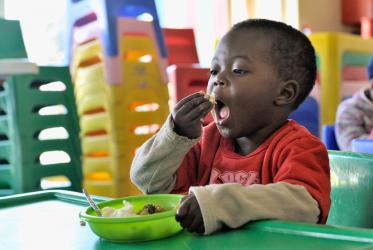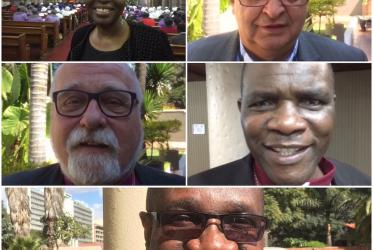Displaying 121 - 140 of 215
Voices from a solidarity visit to Zimbabwe
25 May 2017
Clear priorities set for Zimbabwe
24 May 2017
WCC delegation visits Zimbabwe
19 May 2017
UN discussion focuses on women, HIV and property rights
21 March 2017
Seven weeks of Lent highlight water crisis in Africa
01 March 2017
Religious leaders explore message of peace in Burundi, DRC
23 February 2017
WCC convenes consultation on the DRC political instability
09 December 2016






